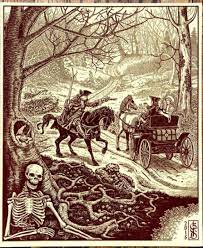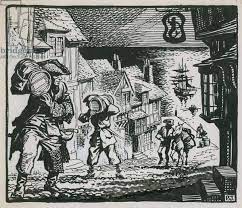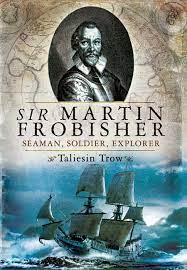Who was Captain Jack Sparrow ?
Who was Captain Jack Sparrow ?
This is a subject that has often entered my mind after watching an entertaining film such as Pirates of the Caribbean or Black Sails. I often wondered who film producers used to inspire their characters. Black Sails is a mix of fact and fiction, a interwoven blend of Treasure Island by Robert Louis Stephenson and the Golden Age of Piracy researched and described by Colin Woodward in The Republic of Pirates. However, what of Captain Jack Sparrow. Readers maybe surprised to learn that piracy took place every where in the world with many notable characters to speak off.
"The Greatest Scounderal that sailed from England" - of Captain John Ward by Sir Henry Wotton 1608.
Hollywood would only have us focus on the lush Islands of the West Indies. With the 17th century Buccaneers being used in the same breadth as their redundant sailors the pirates on the Golden age of piracy of the 18th century with a cross over of Privateers spanning centuries and arguably being bought into play from the English perspective with the formation of the Cinque Ports. However, few films (to my knowledge) about the most significant theatre of piracy for England and most of Western Europe is The Mediterranean.
The Islamic nations of North Africa and Turkey with their Galley ships of sails and slave rowers fail to make the big screen and it was not until I recently read Adrian Tinniswood's Pirates of Barbary that the rich pickings in the study of piracy in the Mediterranean could be appreciated. In this book it studies trade and piracy with what is referred to as the turks. The book gives analysis to the geo-politics, characters and nations dealing with trade, war and piracy. The readers attention is drawn to the many European pirates that turned Turk and became Corsairs. One in particular became a corsair amongst others worthy of mention as We return to our question 'Who was Captain Jack Sparrow ?'.
John Ward or more appropriately 'Captain' John Ward aged 55, bald, very white and speaks little' (p15, Pirates of Barbary, Tinniswood) as described by Sir Henry Wotton in 1608. Ward was not just the most famous pirate of his time, but was half man and half legend puts it into perspective. Ward, frequenting the taverns of Portsmouth learned of a Ship chartered by a Catholic man looking to emigrate to France for religious reasons, had a personal fortune of £2000 on board. Ward in his wisdom (in true Sparrow style) with his crew of thirty boarded the chartered ship and took the two watchmen prisoner and stole the ship. Once leaving Portsmouth behind them Ward and his renegades found that the money was not on board and was safe in Portsmouth !
Ward set sail for the African coast in the Mediterranean. En route, He hailed a French merchantman off the Isles of Scilly for two hours before launching a surprise attack and capturing her. With two ships under his command He set sail for Tunis.
Ward arrived in Tunis in 1605 and was welcomed by Uthman Dey the pascha who saw Ward's potential in Dey's fight against the Christendom of western Europe. Uthman Day's enthusiasm for piracy led to the return of Merchants to Tunis. Ward was safe in Tunis with the backing of men, supplies and official approval from Uthman Dey. Thirty five Corsair captains were listed in Tunis from all over Europe.
In 1606 Ward operating out of Tunis, was cruising in the Aegean sea, when He took the English ship John the Baptist carrying silks. Ward took the vessel and its cargo back to Tunis. In the same year the Venetian Merchantman Rubi carrying spices was also captured by Ward. The Carminati was captured by Ward and the crew were placed in a rowing boat off the coast of Milos in 1607.
It was April 1607, when Ward was sailing in tandem on the Rubi and the Gift off the Turkish coast when the 1500 ton Reniera e Soderina carrying cotton, silk, indigo, salt and other cargos. Ward attacked the sluggish levithan with his nimble tandem smashing holes in the hull, tearing down the masts and terrorising the crew and passengers on board the Soderina. The Soderina surrendered and She was towed back to Tunis.
Ward had by now an infamous reputation. He set sail on the refitted Soderina with a fleet of pirate ships financed by Uthman Dey in December 1607 as Admiral of the fleet. However, Ward encountered a storm in the Eastern Mediterranean. Survivors were picked up 100 miles of the Greek coast, who claimed to be crew of the Soderina. It was presumed Ward had drowned on board.
The diplomatic intelligence channels confirmed Ward had survived as He was not on board the Soderina. Ward was in fact safe and well in Tunis. When, King James the first learned of this. The King declared that every Government official apprehend 'Captain James Ward and his adherents, and other English pirates (p40, Pirates of Barbary, Tinniswood).'
Captain John Ward despite his setbacks and successes decided to then convert to Islam and was now known as Yusuf Reis, Reis married and settled in Tunis until his death in 1622.Never returning to England.
Referring, back to the question at the beginning you may have noticed some common traits between Sparrow and Ward. A daring warrior and brave man. The Book Pirates of Barbary goes into greater depth of Ward's adventures and is worth reading and only then can Ward be fully appreciated. So, next time you see Sparrow you'll know that in fact it is the Mediterranean's most feared and infamous arch- pirate corsair Captain Yusuf Reis !
Bibliography.
Pirates of Barbary, Adrian Tinninswood, 2011.
The Republic of Pirates, Colin Woodward, 2016
Treasure Island, Robert Louis Stephenson, 1883.
Richard Kassir, Extensive USB of Wonderful old books gone out of print, 2023.














Comments
Post a Comment